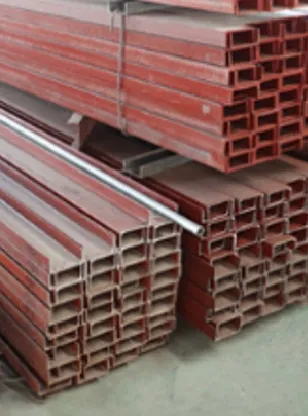loading...
- No. 9, Xingyuan South Street, Dongwaihuan Road, Zaoqiang County, Hengshui, Hebei, China
- admin@zjcomposites.com
- +86 15097380338
- Welcome to visit our website!
Professional Water Softener Systems | Effective Hard Water Solutions
Understanding Water Softener Systems
Water softener systems are essential appliances that improve the quality of water in households and industries. Hard water, which contains high levels of minerals such as calcium and magnesium, can lead to various problems, including scale buildup in pipes, reduced efficiency of appliances, and diminished soap lathering ability. A water softener system helps mitigate these issues by replacing hard minerals with sodium ions, effectively softening the water.
How Water Softeners Work
The primary mechanism behind water softening is known as ion exchange. In this process, water passes through a tank filled with resin beads that are coated with sodium ions. As hard water enters the tank, the calcium and magnesium ions in the water attach to the resin beads, displacing the sodium ions. This exchange transforms hard water into soft water, which is more compatible with household tasks, such as cleaning and laundry.
Once the resin beads become saturated with calcium and magnesium, the system goes through a regeneration cycle. During this cycle, a brine solution, typically made from salt and water, is introduced to the resin tank. The high concentration of sodium in the brine solution displaces the accumulated calcium and magnesium, flushing them out of the system and replenishing the resin with sodium ions. This process is crucial for maintaining the effectiveness of the water softener.
Benefits of Installing a Water Softener
Investing in a water softener system offers numerous advantages. Firstly, it helps extend the lifespan of plumbing fixtures and appliances. Hard water can create scale deposits that reduce efficiency and cause wear and tear. By softening the water, homeowners can prevent costly plumbing repairs and appliance replacements.
water softener system

Secondly, soft water enhances the effectiveness of soaps and detergents. With softened water, less soap is required to achieve the same level of cleaning, leading to savings on household products. Additionally, clothes washed in soft water feel softer and last longer, while dishes come out from the dishwasher spot-free and gleaming.
Furthermore, water softeners contribute to better skin and hair health. Hard water can dry out skin and make hair brittle. Softened water is gentler on hair and skin, promoting hydration and vitality.
Considerations for Choosing a Water Softener
When selecting a water softener system, several factors should be taken into consideration. The size of the system should correspond to the household's water usage. It's also essential to consider the type of system—whether a traditional salt-based softener or a salt-free alternative best suits your needs. Salt-free systems, for instance, do not rely on ion exchange but rather alter the structure of minerals, preventing them from causing scale.
Additionally, the cost of maintenance and the availability of service should factor into the decision-making process. Some systems require regular upkeep, while others may be more self-sustaining.
Conclusion
Water softener systems play a pivotal role in improving water quality, leading to better health, efficiency, and cost savings. By understanding how they work and their benefits, homeowners can make informed decisions that enhance their living environment. Whether for personal comfort, household efficiency, or appliance longevity, investing in a water softener is a step toward a more sustainable and enjoyable home.
-
Premium FRP Handrail for All ApplicationsNewsAug.29,2025
-
Low Maintenance FRP Mini Mesh Grating ProductsNewsAug.29,2025
-
Innovative FRP Square Tubes for Modern Industrial SolutionsNewsAug.29,2025
-
FRP Water Storage Tanks Wholesale Solutions for Bulk BuyersNewsAug.29,2025
-
FRP Molded Grating Solutions for Diverse Industrial ApplicationsNewsAug.29,2025
-
Construction Advancements Through FRP Pultruded ProfilesNewsAug.29,2025
-
Why Choose FRP Railings, Guardrails, and Handrail Systems?NewsAug.29,2025
